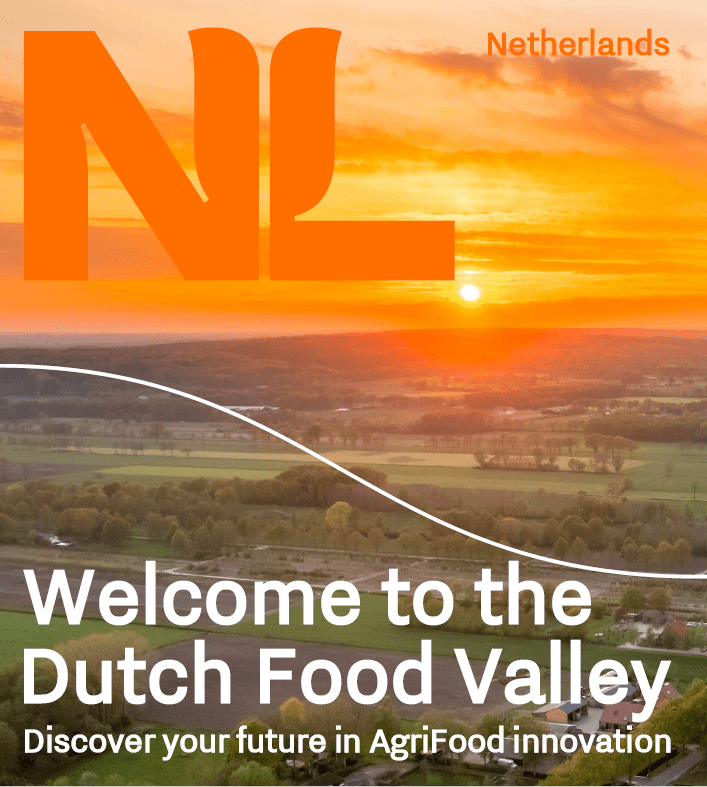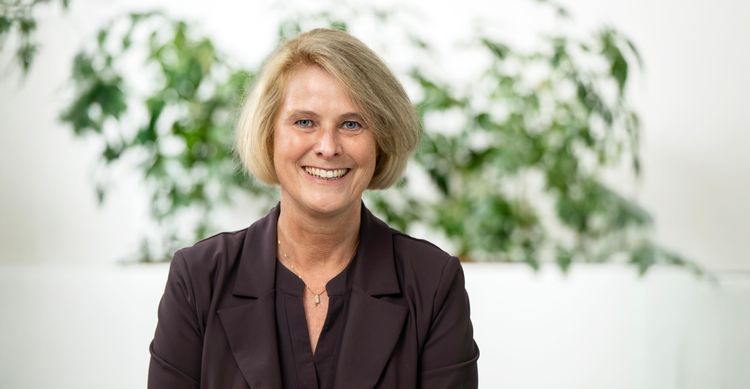
Upstream Foods
Upstream Foods brings cell-based sushi to the table.

Meet Kianti Figler, the co-founder of Upstream Foods, whose journey from biomedical sciences and tissue engineering to food tech entrepreneurship exemplifies the innovative spirit of the Dutch Food Valley. With a background in cell biology and a desire to contribute to a more sustainable world, Kianti and her team at Upstream Foods are developing lab-grown fish fat cells to enhance plant-based seafood alternatives, offering a solution that is both sustainable and flavourful.
Kianti's path to Wageningen Campus, the heart of the Dutch Food Valley, was a mix of serendipity and strategic thinking. "We had a technical co-founder who was based in Wageningen and experienced in biotech," she explains. The scarcity of suitable laboratory space elsewhere and the presence of world-class research facilities made Wageningen the ideal choice for Upstream Foods.
Facilitators in Food Valley
In order to grow their ideas into a start-up, Kianti and her co-founders were not left unsupported. The StartLife accelerator programme, exclusively for food and agri-tech start-ups, played a pivotal role in Upstream Foods' early days. StartLife offered more than just funding opportunities: "In the earliest days they focused a lot on market validation. They established connections with larger corporates and opened the door to the food ecosystem," Kianti shares. The support extended beyond introductions: "They also guided me into the business mindset, how to be commercial and validate what I think is right. It taught me not to make assumptions and gave me insights into hiring and finance structures."
You won’t get this kind of connection to a food ecosystem anywhere else. To have access to the food industry, this is the place to be.
Life as a start-up in the Dutch Food Valley offers unique advantages: "You won’t get this kind of connection to a food ecosystem anywhere else," she states. "To have access to the food industry, this is the place to be. You have FrieslandCampina, Thai Union, and many R&D people from corporates as well as R&D people from the university." It is not just the R&D-centred atmosphere that is helpful, she continues. “Here in the Dutch Food Valley we have R&D grants and research and development grants, as well as EFRO Oost funding for the eastern part of the Netherlands.” Additionally, she mentions the large investments by the ‘Groeifonds’ or Growth Fund into cell-based agriculture facilities and how this will help scale up production for a variety of cell-ag technologies. This fund is also available to other cell-based agristart-ups, further advancing this innovative method and supporting the transition to alternative proteins.
“Talk to others”
The collaborative spirit in the Dutch Food Valley is evident in Upstream Foods' early experiences. Kianti recalls, "When we started, one of the first things we did was call up one of the R&D departments from the neighbours, who brought over a variety of different proteins to mix with fish fat cells. This was our first validation point." She adds that the Netherlands is truly unique for collaborative innovation projects: “Projects with other players in the industry really allow you to get into 1+1=3 scenarios.”
Kianti emphasises the role of organisations like StartLife in facilitating connections within the ecosystem. "StartLife has been a very important player for us; even when you have all the right departments and companies located close by, that doesn’t mean they are automatically connected. You also need to find a way to link them, and StartLife has achieved this effectively through networking and events."
Kianti's experience with Upstream Foods demonstrates that the Dutch Food Valley offers a unique blend of academic expertise, industry connections, and support systems that make it an ideal location for agri-food start-ups. With accelerators like StartLife, both foreign and domestic start-ups with innovative ideas, and substantial commitments from the Groeifonds into cell-based agriculture, the future of cell-ag and other agricultural technologies will undoubtedly be rooted in the Dutch Food Valley.
Welcome to the Dutch Food Valley magazine
This story was previously published in the 'Welcome to the Dutch Food Valley - Discover your future in AgriFood innovation' magazine.
The e-magazine features real stories about one of the most innovative and forward-thinking agrifood regions in the world: Food Valley in The Netherlands, uniting start-ups, scale-ups, research institutions, and multinational corporations. The stories in the e-magazine highlight the region’s remarkable achievements, from cutting-edge research at Wageningen University & Research (WUR) to the success stories of agri-food pioneers driving sustainability and efficiency in food production.
Click the button below to read the entire magazine.
Welcome to the Dutch Food Valley magazine
This story was previously published in the 'Welcome to the Dutch Food Valley - Discover your future in AgriFood innovation' magazine.
The e-magazine features real stories about one of the most innovative and forward-thinking agrifood regions in the world: Food Valley in The Netherlands, uniting start-ups, scale-ups, research institutions, and multinational corporations. The stories in the e-magazine highlight the region’s remarkable achievements, from cutting-edge research at Wageningen University & Research (WUR) to the success stories of agri-food pioneers driving sustainability and efficiency in food production.
Click the button below to read the entire magazine.

